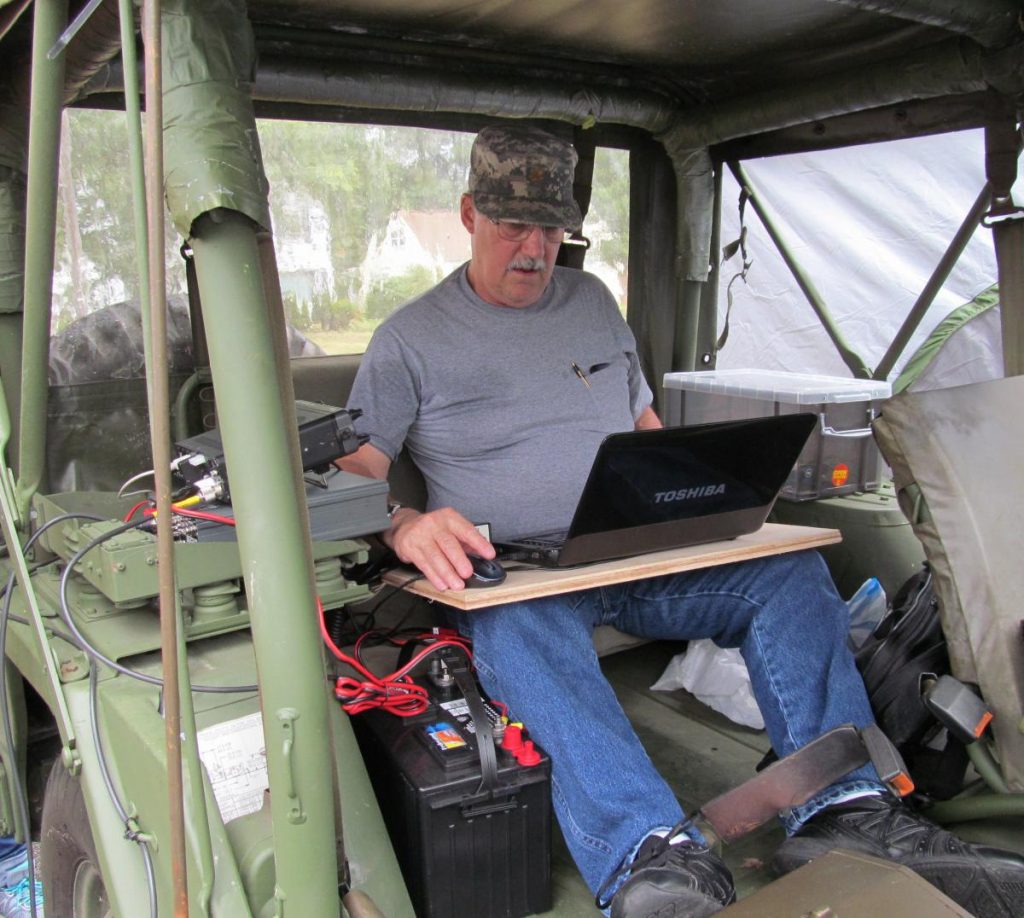
One of the great things about Ham Radio is its ability to bring people together. Whether congregating at a hamfest, attending an educational seminar, making a QSO with a station across the Atlantic, or teaming up with friends on an antenna project, Ham Radio is at its best when we’re able to share the excitement of this great hobby.
Nowhere is this more true than at Amateur Radio club meetings that occur every day across the U.S. and around the world. Both new and experienced operators gather to organize Ham Radio events, discuss technical issues, listen to expert presentations, volunteer in the community, perform licensing exams, swap stories and gear, and generally promote the importance of Amateur Radio to anyone who will listen.
If you’re newly licensed and have been reluctant to join a club, rest assured that you won’t find a more welcoming community than Ham Radio folks. Where do you start? Click here to search for an ARRL-affiliated club (out of nearly 2,500 in the U.S.) in your area.
Six Reasons to Join an Amateur Radio Club
Elmers Everywhere: Jumping into the Amateur Radio hobby without a mentor can be like diving into deep water without a life preserver. For many new Hams, the difference between sinking to the bottom and blissfully floating along is the wise guidance of an Elmer. Joining an Amateur Radio club gives you access to not just one, but a group of Elmers—experienced operators who can help you get off on the right foot. Additionally, clubs often present speakers—either in person or via the Internet—on current Amateur Radio topics.
“If you are a new Ham, joining a local club can help you get on the air and be successful much faster than if you tried to do it on your own,” said Tom Sly, WB8LCD, Ohio Section Affiliated Clubs Coordinator for the ARRL. “Most clubs have members who can offer a lot of practical knowledge on setting up the technology to work for your intended purpose. Learning from the experience of others will drastically reduce the learning curve to set up a working station and become proficient in the operating skills necessary.”
Serve the Community: Many clubs offer opportunities to participate in public service activities, in which members provide communications for community events such as walks, runs, bike rides, concerts, and parades. You can also learn more about how to get involved in using your license to provide emergency communication services. Furthermore, you can play a role in activities that let others in the community see the value of Ham Radio.
Meet Cool People: Talk to a Ham and they’ll tell you some of the closest friends they’ve ever made have come thanks to their interest in Amateur Radio. Think you may be the only inexperienced operator in the crowd? Think again. Club members run the gamut from Hams on the DXCC Honor Roll to those still waiting to make their first QSO—and every skill level in between.
“Most active Hams belong to several clubs,” Sly said. “Although Amateur Radio is by nature a ‘technical’ hobby, communicating with others is the basic premise of the technology, and communicating with other local club members gives you the opportunity to get to know the other Hams in your area.”
Broaden Your Horizons: Whether you’re a newbie or a longtime Ham looking to get back on the air after years of inactivity, joining an Amateur Radio club can introduce, or reintroduce, you to the wide-ranging aspects of the hobby. Those who find a particular area of interest may then decide to join more specialized groups, such as AMSAT (Radio Amateur Satellite Corporation) or QRP ARCI (QRP Amateur Radio Club International).
“Joining a local club will help you recognize all the different ways you can participate as a Ham, whether it’s DXing, contesting, fox hunting, moonbounce, VHF/UHF, QRP, satellites, or any of the other activities that Hams pursue,” Sly said. “Being part of a local group will also give you the motivation to move through the license classes to become a General or even Amateur Extra, opening up the broadest operating privileges available across the bands.”
Stay Up to Date: Through meetings, websites, and newsletters, Amateur Radio clubs serve as valuable resources for what’s happening in the Ham Radio community, both locally and worldwide. Get the latest news on contests, equipment, gear for sale, operating events, and more from people who know.
Enjoy Yourself: For most Amateur Radio enthusiasts, the answer to “Why are you a Ham?” is simple. Because it’s fun! Participation in an Amateur Radio club is a great way to enhance your enjoyment of the hobby. Events like picnics and Field Day help build a spirit of comradery and fellowship among club members.
“I’ve known Hams who got involved with a local active club and ended up having the time of their life with all the activities and areas of interest to participate in—and all it took was getting involved with a group which was willing to look at and try new things,” Sly said. “Being involved in a local Amateur Radio club is the best catalyst to becoming fully immersed in the Amateur Radio hobby.”
For a good look at all you can get out of an Amateur Radio club, visit the PCARS (Portage County Amateur Radio Service, Ohio) website. Check out the club newsletter to see how active PCARS is. The group was honored as the Dayton Hamvention® Club of the Year in 2018.

